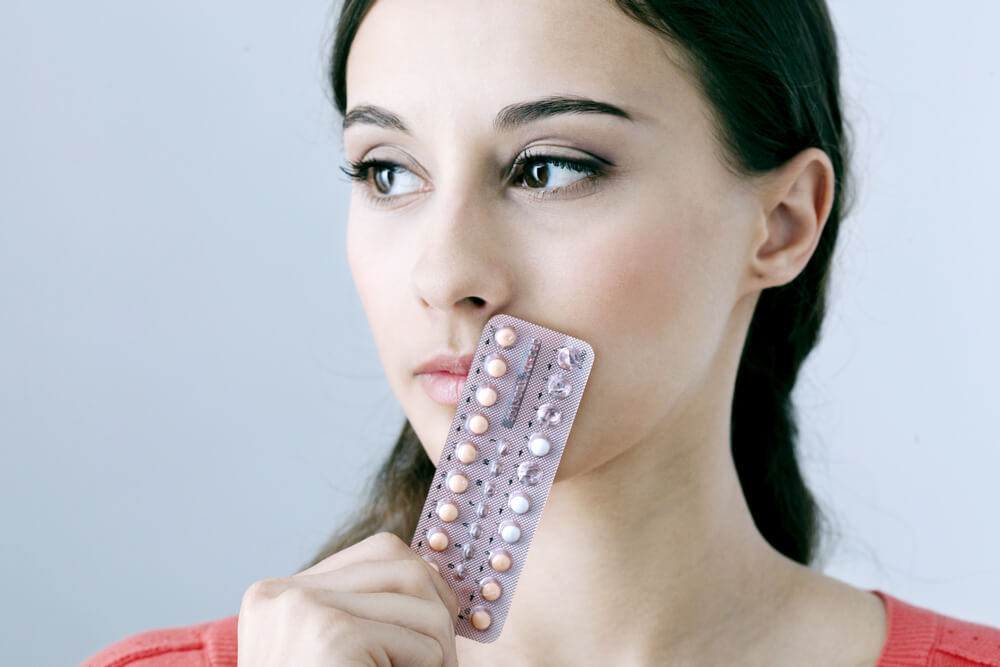As most women can attest to, periods can be painful. It’s estimated that around 80% of women experience period pain at some point.[2] Of course, some women experience more severe pain more frequently than others. It varies from woman to woman, but the pain can be downright debilitating when it comes.
What you may not know, though, is that there are a number of different types of menstrual pain. The treatment you receive will depend on the types of pain you experience. Here is more information on vaginal pain during period and some treatment options.
Types of Menstrual Pain
There are two main types of pain associated with a woman’s menstrual cycle: primary dysmenorrhea and secondary dysmenorrhea. They are primarily differentiated by the cause of the pain—internal organ damage or natural body function.
Primary dysmenorrhea is the common pain that naturally comes with a woman’s period. The pain can occur in the abdomen, back, or thighs. It can be anywhere from mild to severe. The pain will typically occur right before a woman’s period is about to start.
Organic compounds in the body, known as prostaglandins, become stimulated during a woman’s menstrual cycle as the uterus contracts. It’s the increased levels of prostaglandins that cause the pain.[3] The levels vary from woman to woman, but all women have some level of prostaglandins increase at this time.
Secondary dysmenorrhea pain may result from a problem with the reproductive organs, making it much more serious. It can start even earlier than normal menstrual pain, and it lasts longer, too. You will need to put more effort into treating this type of pain, and it may even require surgery. It can derive from infection of cysts, endometriosis, STDs, or fibroids. It can also sometimes be a result of an IUD.[1]
Endometriosis is a condition in which cells that resemble the cells in the uterus grow in other places. Fibroids are benign tumors that grow in the uterus. STDs are infections that come from sexually transmitted diseases. An IUD is a type of birth control inserted into the wall of the uterus.
Types of Treatment
There are a number of ways to handle your pain. Of course, treatment depends on what kind of pain you have and how severe it is. You should always consult with a qualified doctor to find the root cause of the problem and the best treatment methods. Here are some common ways to alleviate pain during your period.
CBD
CBD, or cannabidiol, has become a popular method of relieving mild pain. It can also help with anxiety and insomnia. This is best for mild pain, not severe pain.
Users can ingest CBD by eating it or smoking it. It doesn’t get you intoxicated like its cousin THC, but it will offer a sense of relaxation. This is also an organic way to fight the pain without medication.

Exercise
Sometimes the body needs to get moving to get the blood circulating. It’s a good idea to hit the gym and get some exercise when you are feeling pain. This can be difficult when it’s hard to even get up out of bed, but it will help in the long run. You don’t necessarily need to do high-intensity cardio to feel good. You can also try yoga, Pilates, and strength training.
OTC Medication
One of the most common ways that people heal themselves from pain is by taking OTC (over-the-counter) medications. There are even medications at the pharmacy specifically made to alleviate this particular kind of pain. Always stay stocked up so you can take the medicine right when you need it. OTC medication is mostly harmless if taken appropriately with all label guidelines followed.
Prescription Medication
If the pain is regularly severe, your doctor may prescribe prescription medication, including narcotics. These will likely be effective. However, you should be careful not to take prescription pills unless absolutely necessary. Many come with harmful side effects, such as addiction.
Birth Control
Birth control increases hormones in your body. In the right case, birth control can help with the pain by controlling hormones and making your period lighter or stopping it altogether. This is a common treatment for women who suffer from endometriosis. A doctor may prescribe the pill or an IUD to see if that helps while also offering protection from pregnancy.

Surgery
If your pain comes from a physical problem with your reproductive organs, you are going to need to fight the pain at the cause. This may require surgery to remove a cyst or a tumor. While surgery is a last resort option, it may be the only solution.
When to Go to a Doctor
How do you know when your pain is normal or if it’s something that requires the assistance of a doctor? Here is what to look for.
- You experience pain in your pelvic area outside of your period: If the pain persists when you aren’t on your period, that is a sign of something terribly wrong since it’s obviously not only related to your period—it’s related to your internal organs.
- You feel intense pain: Sometimes the pain is so bad that you can barely get out of bed, let alone go to work or go about your day. In this instance, the pain is so bad that OTC medication isn’t helpful. If you suffer from addiction, you’ll want to talk to your doctor about alternative methods of pain relief instead of prescription drugs.
- You feel pain when you urinate: For some women, the pain intensifies when using the toilet. This can be a sign that the organs aren’t working properly. This is true both during and not during your period.
- You feel pain during sex: If sex is regularly painful for you, it’s a sign that there is something wrong. Some women who suffer from painful sex do so because of inflammation, cysts, or tumors. Fixing the problem can make you feel better, and it can also increase intimacy with your partner.
If you suffer from period pain, you need to be able to determine if you should go to a doctor or not. One of the biggest signs it’s time to get medical attention is severe pain, even outside of your period. If this is the case for you, it’s time to call for period pain treatment in Bradenton.
Do you feel like you suffer from unusually severe pain during your period? Does your period make you debilitated and unable to function normally? We want to help you. Call us today to put an end to the pain.
References:
[1] https://always.com/en-us/tips-and-advice/your-first-period/all-about-menstrual-cramps-and-your-period-pain
[2] https://www.womens-health-concern.org/help-and-advice/factsheets/period-pain/
[3] https://www.healthline.com/health/prostaglandins#how-they-affect-you


